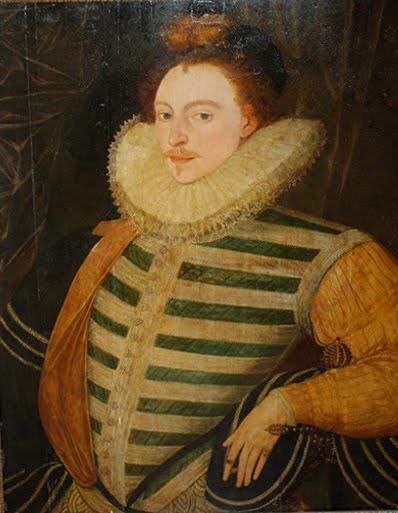Shakespeare - a mystery not so mysterious after all
Have you ever sat with a Shakespeare text and wondered how it seems that the world the play takes place in seems so far removed from what we are usually taught about William Shakespeare himself? Pondered over why it is strange that we don't know more about Shakespeare the man himself? That somehow the pieces of the Shakespeare puzzle don't seem to fit? That the story of the country lad who went to London, leaving his wife and young children in a remote Cotswold village to seek his fortune, almost as of overnight magic, became the most famous play-write and poet in the English language? It doesn't really make sense, does it?
The man who wrote Shakespeare, knew about the ways of kings and queens, he wrote about the far Italy as if he had been there. Not only that, but he even wrote whole scenes in French! One of his favourite writers seems to have been a certain Ovid - and for you who don't know who that was - Ovid was a Roman poet from the years around the year 0.
Shakespeare has been dumbed down by scholars that have ridiculed his mistakes, as giving Bohemia a coast, or travelling by boat from Verona to Milan, as though they had sea ports, or writing about the Emperor's court at Milan, when Milan only had a Duke, etc.. But the truth is, that instead of laughing about this country boy who got it all wrong, but still was able to write so well, despite of his evident dumbness, they should have checked the facts. Because the fact is, that he was right about it all, from the boats to the Emperor to the Bohemian coast. For the initiated reader, the plays are so full of hints and wit, that the story of the lad from Stratford does not hold up.
So, what if we have the wrong guy? What if Shake-speare (as it was spelled when it first appeared in print) was a pen-name, a pseudonym? What if, if we would change perspective a bit, all the pieces of the puzzle would suddenly fit together? What if, the plays and the poems suddenly, through the shift of perspective, gained a new meaning, and become more colourful, funnier, wittier than ever before? What if the plays and poems would give us a peep-hole into the Elizabethan times, of the intrigues, the loves, the merriment and the tragedies? And what if Hamlet would essentially be a self portrait, not of a man who won fame and fortune, but of a man who lost it all?
The man who wrote Shakespeare, knew about the ways of kings and queens, he wrote about the far Italy as if he had been there. Not only that, but he even wrote whole scenes in French! One of his favourite writers seems to have been a certain Ovid - and for you who don't know who that was - Ovid was a Roman poet from the years around the year 0.
Shakespeare has been dumbed down by scholars that have ridiculed his mistakes, as giving Bohemia a coast, or travelling by boat from Verona to Milan, as though they had sea ports, or writing about the Emperor's court at Milan, when Milan only had a Duke, etc.. But the truth is, that instead of laughing about this country boy who got it all wrong, but still was able to write so well, despite of his evident dumbness, they should have checked the facts. Because the fact is, that he was right about it all, from the boats to the Emperor to the Bohemian coast. For the initiated reader, the plays are so full of hints and wit, that the story of the lad from Stratford does not hold up.
So, what if we have the wrong guy? What if Shake-speare (as it was spelled when it first appeared in print) was a pen-name, a pseudonym? What if, if we would change perspective a bit, all the pieces of the puzzle would suddenly fit together? What if, the plays and the poems suddenly, through the shift of perspective, gained a new meaning, and become more colourful, funnier, wittier than ever before? What if the plays and poems would give us a peep-hole into the Elizabethan times, of the intrigues, the loves, the merriment and the tragedies? And what if Hamlet would essentially be a self portrait, not of a man who won fame and fortune, but of a man who lost it all?






0 comments